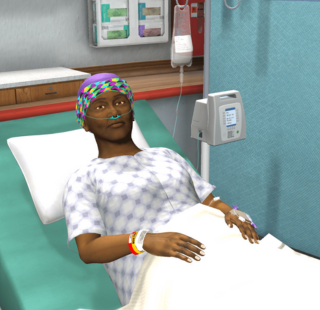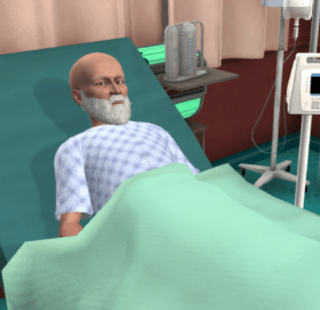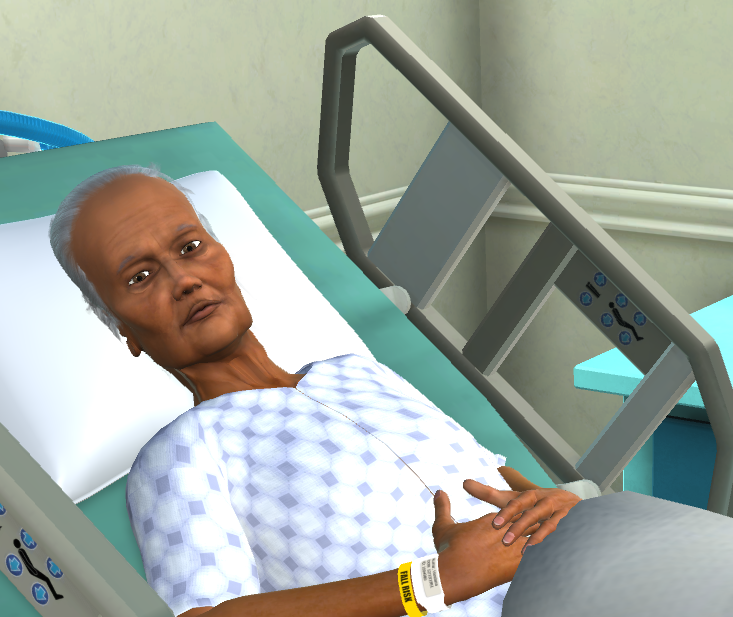
October 6, 2023
Of all the vital functions of nurses, palliative and hospice care is one of the most impactful. When patients are approaching end-of-life situations, the conversations nurses have with both patients and their families are difficult, sensitive, and at times contentious.
These conversations can have a huge and lasting impact. And with an increasingly aging population, palliative care is becoming a larger proportion of nursing care.
First, the good news.
Palliative and hospice care has greatly expanded in recent years. Where in the past, a patient nearing the end of their life would need to go to a hospice facility, an increasing number of healthcare facilities now provide on-site palliative and hospice care.
But challenges remain.
When nurses are being trained, there are few opportunities for actual palliative conversations in a clinical setting. Classroom training is important, but insufficient.
Because of this gap, Shadow Health has been building new Digital Clinical Experiences™ focusing on patients in need of palliative and hospice care for the more than 700,000 nursing students who use the product.
We spoke about these new simulations with three nurse educators at Elsevier who played key roles in their creation: Cheryl Wilson, DNP, APRN, ANP-BC, FNP-BC, CNE, CHSE, Amanda Davis, PhD, APRN, FNP-C, and Brittny Chabalowski, DNP, APRN, AGACNP-BC, CNE, CHSE
“Going through an experience and helping someone and their family when they’re dealing with the end of their life is such an important privilege,” explains Brittny. “It is something that will stick with that family for the rest of their lives.”
“When I was trained, we had one lecture in our fundamentals course on death and dying,” added Cheryl. “We’ve evolved that into hospice and palliative care, which I think is phenomenal.”
“More individuals are able to get the care under the umbrella of palliative care than ever before because those umbrellas have opened up a bit,” said Amanda. “Hospice and palliative care is not just for the patient, but rather to support the whole family and get them through those hard discussions.”
Shadow Health now has three simulations that focus on palliative and hospice care::

Focused Exam: End of Life with Regina Walker, where students will have a conversation with Mrs. Walker about hospice care, spiritual considerations, and pain management.

Patient Care Rounds: Postmortem Care with Samuel Green, in which students will assess a patient who is expected to pass away and conduct appropriate interventions.

Complex Assessment: End Stage Heart Failure with Vandana Kumar, where students will speak with Mrs. Kumar about her request for hospice care and advocate for her wishes with her immediate family.
“Regina was introduced in 2017 and was the first opportunity for nursing students to initiate the conversation about hospice care,” said Brittny.
“Vandana was added to Shadow Health last year and broadens the conversations by having the student interact with her son,” she added. “They get to explain what palliative care is and also experience some friction from other family members, which is very common.
“Our most recent simulation is Samuel, who is very close to passing and has his family at his bedside. The student gets to practice important end-of-life considerations, such as religious needs and how to support the family through it,” added Brittny.
“Those conversations are so important to practice in a safe environment because when you’re faced with it for the first time as a new nurse, there’s going to be a lot of anxiety and a lot of adrenaline,” said Cheryl. “If they have practiced it multiple times, as with any difficult conversation, they’re much more comfortable having that conversation.”
The team at Shadow Heath worked with subject matter experts in the field to ensure accuracy and realism in the simulated conversations.
“Palliative care is a natural continuum,” explained Dr. June Llerena, PhD, RN, Assistant Teaching Professor, Simulation Curriculum and Development Director at the University of Tampa.
“We are focusing on the quality of life and the care needed over the quantity of days left for the patient. You are honoring the patient’s wishes and making them comfortable.”
Ultimately, using the Shadow Health simulations helps build both knowledge and empathy for nursing students.
Amanda sums it up by saying: “This is the time when you’ll practice when to infuse empathy and when to hold off and ‘give self,’ which is simply letting the patient know that you’re actively listening.”